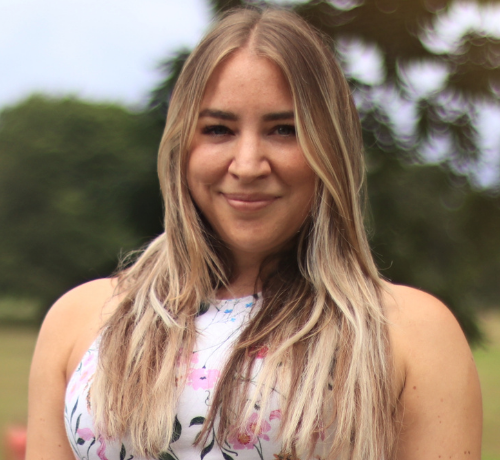Voluminous hair that catches the light beautifully is often what's considered healthy. So if you find yourself staring at the shower drain and the number of hair strands clogging it up, it can be distressing.
Thankfully, some hair loss is normal. However, you can experience an increase in hair shedding for various reasons. To understand the science behind hair thinning, VEGAMOUR spoke to an expert. Plus, find out what products you can use to encourage thicker, fuller looking hair.
Why Is My Hair Shedding?
The sight of your hair strands falling out might frighten you, but it's worth remembering that shedding is a natural part of the hair cycle, just as new hair growth is.
Dermatologist, hair transplant expert, cosmetic surgeon and medical head of ClinicSpots, Dr. HariKiran Cheruki, clarified, "Hair shedding is a natural process that occurs to all mammals, including humans. Every day, strands of hair naturally fall out as part of the growth cycle and will eventually be replaced with new ones. This normal process of shedding helps keep our hair healthy and strong by removing dead, weak or damaged hairs. It typically involves between 50 to 150 strands daily for most people."
There are up to 100,000 hair follicles on the average person's head, so losing 100 hair strands a day won't make a massive difference to how your mane looks. But just because the hair sheds naturally doesn't mean you should stop paying attention to your strands. Knowing your normal hair-shedding pattern will help you identify excessive hair shedding if it arises. Some other signs of excessive shedding could include:
- Bald patches and clumps of hair falling out
- A receding hairline or a wider part
- Thinning ponytail or noticeable loss of hair volume
BEST SELLER: GRO HAIR SERUM FOR THICKER LOOKING HAIR
How to Tell if You’re Losing Too Much Hair
If you can't quite tell the difference between a normal amount of hair loss and excessive shedding, you can perform an easy "pull test" at home. Run your fingers through a clean, dry area of the hair and gently tug at it. If more than a couple of hairs are left in your hand after you pull, you might be experiencing some hair loss.
Alopecia areata is the medical term for hair loss and refers to a complex condition that can trigger slow-progressing hair shedding and patchy hair loss. If your gradual hair thinning is becoming very noticeable, always check in with a doctor to get a second opinion.
If you're constantly asking yourself, why is my hair shedding so much? It could be due to one or more of these seven reasons.
1. Telogen Effluvium
The hair from our scalp grows in the following cycles:
- The anagen phase or the hair growth phase. Depending on age and genetics, this stage in the hair growth cycle can last between two to six years. Lifestyle can play a part too. When the hair stops growing, it's often called anagen effluvium.
- The catagen phase is when the hair stops growing. This stage can last from 10 days to four months, and only about 1%-2% percent of your hair is in this stage at any one time.
- The telogen phase is the resting phase of the cycle. The hairs that rest in this phase can also be referred to as club hairs. During the telogen phase, the hair shaft rests as it prepares to detach from your head. Only about 9% of hair strands are in this stage at a time.
- The exogen phase is a shedding phase. You can lose up to 100 hairs per day during this cycle, which only lasts a few days. At the same time you're losing hair, the anagen phase is at play pushing new hairs up through the follicles.
Telogen effluvium occurs when 10% of the hair on your head remains in the telogen phase. Telogen effluvium is temporary, but you'll likely notice more hairs falling out than usual. Sleep deprivation, stress, a poor diet and more might cause you to lose hair, but it's most often temporary and will resolve over a period of time.
Try a Serum for Healthy Looking Hair
#include-related-slider#
VEGAMOUR's best-selling, lightweight, non-greasy GRO Hair Serum uses plant-based ingredients, like red clover, mung bean and curcumin. It can:
- Reduce signs of shedding by up to 85%*
- Increase the appearance of hair density by up to 56%*
*Based on a 120-day independent, third-party clinical study with 40 participants using GRO Hair Serum once daily.
2. Genetics
Hereditary hair loss can wreak havoc on your hair growth, and it could be the reason why you lose strands fast. Female pattern baldness can affect women of any age but is more common after menopause. Hereditary hair loss in males is more common and can be very obvious. Men can start to lose their hair at any age, and the amount of strands they lose is determined by the genes they've inherited from their parents. "Genetics is also a major factor in determining how much someone may experience shedding — some people are more prone than others due to their family history," said Cheruki.
REVIEW: My Experience With GRO+ Advanced Hair Serum
3. Thyroid Conditions
The thyroid is a butterfly-shaped gland that's found at the base of your neck. The thyroid makes hormones that help regulate the body's metabolism. When the thyroid produces too many or too few hormones, it can cause symptoms such as weight gain, irritability, weight loss, fatigue, extra hair and hair loss. If you're concerned and noticing a plethora of unusual symptoms alongside your hair loss, check in with a general practitioner for further guidance.
4. Daily Heat Styling
If you rely on hot tools for your short or long hair, you might experience breakage, split ends and more damage than most. It's possible that extreme heat and twisting the hair excessively with heated rollers can lead to thinning and something called traction alopecia.
5. Tight Hairstyles
Traction alopecia can also be triggered by constantly wearing your hair in too-tight hairstyles. The pulling and tugging of the strands can impact how much hair falls out and damage hair follicles permanently. Avoid tight hairstyles like the following:
- Cornrows
- Dreadlocks
- Tight braids
- Buns and tight ponytails
- Hair extensions and weaves
6. An Unhealthy Diet
A balanced diet with plenty of proteins, vegetables and healthy fats will give you the essential nutrients that the hair needs to grow. However, an iron deficiency might be at the root of your hair loss. Schedule bloodwork and consult with your doctor to find out if you are suffering from a deficiency. Your doctor might recommend dietary changes or supplements to help your body get the goodness it needs.
Related: GRO Biotin Gummies for Healthy Looking Hair
7. Dandruff
Dandruff in and of itself won't cause hair loss, but it can cause distress and embarrassment from the persistent white flakes and itchy scalp that result from the condition.
A scalp detox serum can soothe and refresh the scalp while reducing the appearance of adherent and non-adherent flakes. However, there are other skin conditions that might trigger hair loss, including the following:
- Malassezia fungus
- Lichen planopilaris
- Tinea capitis, also known as scalp ringworm
8. Certain Medications
When the body experiences a sudden change, like a new medication or even giving birth, substantial shedding can occur. Everyone can react differently to different drugs, so it's hard to define which medicines exactly will cause excessive shedding, however, certain birth control pills can cause hair loss. If you've recently started taking a new prescription and have noticed more shedding than usual, talk to your doctor.
See: Can Birth Control Cause Hair Loss? We Asked Medical Experts
Stop the Shedding
Hair grows in cycles, and naturally, your scalp will shed between 50 and 100 hairs a day. But if you notice your normal shedding is getting out of your hand, there might be an underlying issue. Thankfully, in most cases, hair loss is temporary, and by committing to a plant-based hair wellness routine with proven results for decreasing shedding and encouraging thicker, fuller-looking hair, your strands will stay nourished from the inside out. And if you are worried that your hair is shedding excessively, always check in with a dermatologist or medical professional for some expert guidance.
More From VEGAMOUR
- Experiencing Itchy Scalp and Hair Loss? Read This
- 3 Ways a Daily Biotin Supplement Can Benefit Your Hair, Skin and Nails
- Shop Kathleen Post's VEGAMOUR Picks
Photo credit: Polina Tankilevitch/Pexels




















